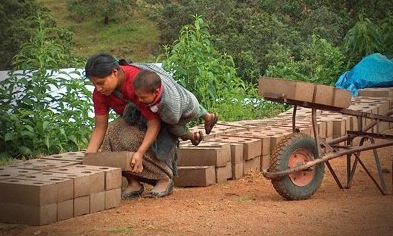Building New Social Franchises Brick By Brick
Editor’s note: This post was originally published on NextBillion en Español
We live in a time of big enterprises and big entrepreneurs. Corporate types have managed to position themselves in such way that their influence over the world is as unsurmountable as their products are in the market.
And franchises are among the tools that have created this boom. Still, how far can this strategy be taken? Could it be leveraged by social entrepreneurship programs? The answer is: absolutely yes.
Building franchises is an easy and relatively cheap way to allow for economic growth. According to an interview with Ceri Jones, director at Social Enterprise UK, in The Guardian, it is more effective than starting from scratch in 12 different locations.
“If you were considering wholly-owned growth in 12 cities, for example, the cost would be vast,” Jones told the newspaper. “It’s off the shelf, you’re getting the benefit of learning already done.”
The International Centre for Social Franchising has produced a report that defines social franchises as “successful social-purpose organizations that enable at least one independent franchisee to deliver their proven model under license.” ¡Échale! a tu casa, is an excellent example of a social franchise in Mexico, organized self-production and self-building housing project that provides dignified homes for low-income families. At ¡Échale! a tu casa, people from marginalized communities receive training to produce an environmentally-friendly material known as Adoblock (with adobe as raw material) and join efforts with a team of architects to design homes adapted to their specific needs.
“With this decentralized system we can adjust homes to family needs. People will replicate elsewhere any method we have taught them. That way, we have better reach in less time,” explains Francesco Piazzesi, program entrepreneur.

The project was kicked-off in 1985 as a civil society organization, but Piazzesi recognized how easily it could be replicated. He reached out to Ashoka, which granted Piazzesi access to a local network of contacts, as well as professional support to turn his project into a successful social franchise.
According to Piazzesi, “the main benefit of franchises is faster replication with less effort.” Franchises should have enough flexibility to allow the managers to adjust to the local needs of each branch. And each entity draws benefit from a huge solid structure provided by the parent company. Also, since franchises distribute administrative tasks among several offices, the company itself does not abandon its main goal: to benefit the population.
So, what does building a franchise entail? How do you start from scratch? Creating a franchise system is a complex, but not impossible process. Social Enterprise UK’s Social Franchising Manual sets forth ten steps for success:
- Consider different forms of replication: choose most applicable to your organisation
- Go through replication readiness exercise
- Raise funding or set aside money to invest in infrastructure / staff time
- Address / strengthen any weak or “unready? areas
- Prepare necessary documents (operations manual, franchise agreement, trademarks, fee structure)
- Select 1-2 pilot / test franchisees, using due diligence and criteria
- Provide initial training and (cultural) induction to franchisees
- Support (test) franchises in all aspects of operations in line with obligations, communicating
constantly
- Assure quality of test franchises, and evaluate impact / success
- Learn, improve and repeat 6-9 with more franchises. Setting up a franchise implies finding individuals deeply interested in the company’s goal, so forging a common identity (and the subsequent social and economic social benefit) will strengthen and solidify a social enterprise.
Today, ¡Échale! a tu casa has built more than 30,000 homes and improved more than 150,000. It also belongs to Ecoblock International, present in 15 states of Mexico and in countries such as Nicaragua, Honduras, Haiti, Egypt, and China.
“Considering society as part of the solution is pivotal,” Piazzesi adds. “Often, people do not think they can accomplish things, which is why we train them and we provide the necessary materials. If people trust and feel that they belong, they will be able to successfully replicate the project.”
- Categories
- Uncategorized
